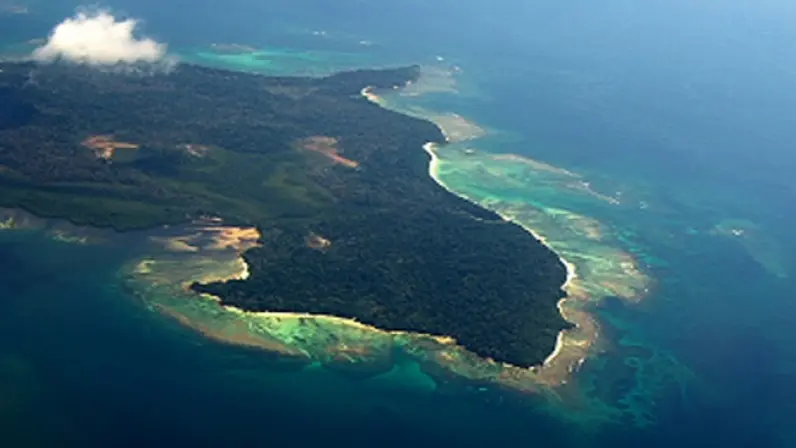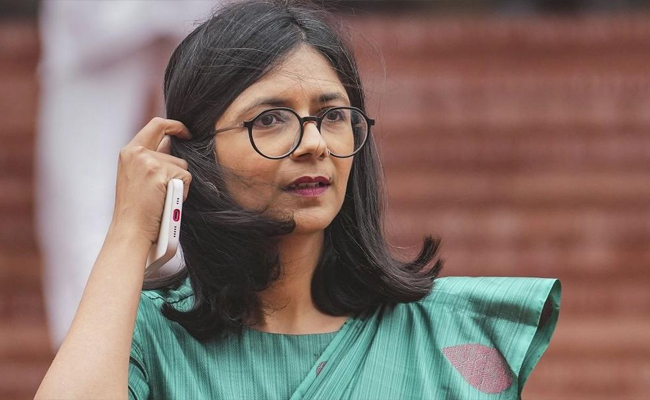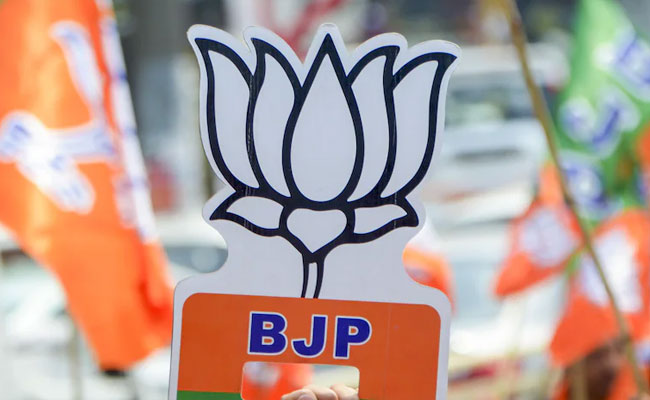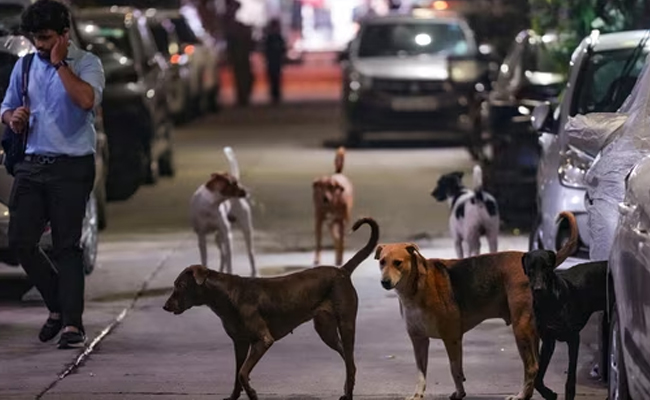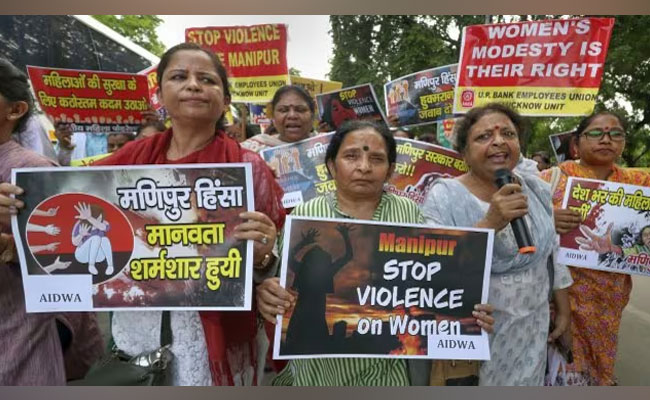New Delhi (PTI): The National Commission for Scheduled Tribes has refused to share information on the impact of a proposed mega infrastructure project on Great Nicobar Island, the southernmost part of Indian territory, on primitive tribal groups and the relocation of villages from tiger reserves, citing parliamentary privilege and other legal exemptions.
This PTI correspondent filed an RTI application on April 3 this year, requesting minutes of all commission meetings held since January 1, 2022; all communications exchanged with the Union Ministry of Tribal Affairs concerning the Great Nicobar Island Development Project and its impact on Particularly Vulnerable Tribal Groups (PVTGs) like the Shompens; and correspondence regarding the National Tiger Conservation Authority's (NTCA) directive to relocate villages from core areas of tiger reserves.
The National Commission for Scheduled Tribes (NCST) disposed of the RTI application on June 9, more than two months after receiving it, asking the applicant to visit its website (http://ncst.nic.in) for copies of all minutes of meetings.
The commission, however, has not yet uploaded the minutes of meetings held since April 6, 2021, on its website.
In response to queries about the Great Nicobar project and the NTCA directive, the NCST asked the PTI correspondent to "provide the concerned file number dealt in the NCST for required information".
In its July 2 response to a first appeal, the commission said the information sought by the appellant is exempted from disclosure under constitutional provisions and relevant clauses of the RTI Act.
In his reply, Y P Yadav, Deputy Secretary and First Appellate Authority (FAA), cited Article 338A of the Constitution, under which the commission submits reports to the President and is empowered to investigate complaints relating to the rights of Scheduled Tribes.
The RTI reply stated that since the NCST is constitutionally mandated to report to the President and since these reports are tabled in Parliament, there is no obligation to disclose such information to the public under the RTI Act.
The commission also invoked several clauses of Section 8 of the RTI Act which allow public authorities to withhold information in specific cases.
These include provisions that exempt disclosure if it would breach "parliamentary privilege", "endanger" someone's life or physical safety, "identify" a source of information or "impede" investigation or prosecution.
The order also referred to a Department of Personnel and Training (DoPT) clarification based on a 2009 Bombay High Court judgement, which said, "The public information authorities cannot expect to communicate to the citizen the reason why a certain thing was done or not."
Tribal rights experts argued that the commission's refusal to share even the minutes of its meetings is at odds with the spirit of transparency and public accountability.
"The NCST is a constitutional body created to safeguard tribal interests. If it begins denying access to basic information about its functioning, the entire purpose of having such a body is undermined," said a tribal rights researcher who did not wish to be named.
The denial comes at a time when the Great Nicobar Island project has drawn sharp criticism from conservationists, scientists and tribal rights advocates, who fear that it could displace Indigenous communities and irreversibly damage ecologically sensitive zones.
The project, titled 'Holistic Development of Great Nicobar', involves the construction of a transshipment port, an international airport, a township and a power plant spanning more than 160 sq km. This includes around 130 sq km of pristine forest inhabited by the Nicobarese, a Scheduled Tribe (ST), and the Shompens, a Particularly Vulnerable Tribal Group (PVTG), whose population is estimated to be between 200 and 300.
Similarly, the NTCA's directive for relocation of villages from tiger reserves has sparked controversy, with concerns over the lack of consultation with the affected tribal communities and the alleged violation of the Forest Rights Act.
In an interview with PTI in June, NCST member Asha Lakra said tribal communities in Great Nicobar are not opposed to development but lack sufficient information about the proposed mega infrastructure project on the island.
Lakra, who led an NCST team to the Andaman and Nicobar Islands from June 5 to 7 to review the issues faced by the tribal communities, said the commission held a detailed meeting with representatives of all tribal groups, including the Great Andamanese, Jarawa, Nicobarese and Shompens.
However, Barnabas Manju, Chairman of the Little and Great Nicobar Tribal Council, told PTI that the council was not invited to the meeting and came to know about it through the local media.
The council had written to the Union Environment Ministry and the Andaman and Nicobar administration in November 2022, withdrawing a no-objection certificate (NOC) it had issued in August that year for the denotification of 84.1 sq km of tribal reserve and the diversion of 130 sq km of forest for the project. It alleged that crucial information was withheld while seeking the NOC.
In April 2023, the NCST issued a notice to the Andaman and Nicobar administration seeking "facts and an action-taken report" on allegations that the mega project would violate the constitutional mandate and "adversely impact" the lives of local tribals.
At a media interaction last month, Union Tribal Affairs Minister Jual Oram said his ministry was examining objections raised by tribal communities regarding the proposed project.
In an interview with PTI in February last year, NCST's former acting vice chairperson Ananta Nayak said media reports criticising the "strategically crucial" mega construction project were an "international conspiracy".
He said national security should be the "primary concern" of any government.
Great Nicobar Island is one of the most strategically important areas. The Andaman and Nicobar Islands provide India a commanding geostrategic presence in the Bay of Bengal and access to South and Southeast Asia.
Let the Truth be known. If you read VB and like VB, please be a VB Supporter and Help us deliver the Truth to one and all.
New Delhi (PTI): A Delhi court on Thursday acquitted AAP MP Swati Maliwal accused of allegedly disclosing the identity of a 14-year-old rape victim who succumbed to injuries.
Additional chief judicial magistrate Neha Mittal acquitted Maliwal.
A detailed order is awaited.
Delhi Police booked Maliwal in 2016 when she was the chairperson of Delhi Commission for Women, and said there was a blatant violation of provisions of Juvenile Justice Act, which protect the identity of a minor victim of sexual offence.
The minor girl succumbed to her injuries on July 23, 2016, at a hospital after being sexually assaulted by her neighbour who allegedly forced a corrosive substance down her throat and damaged her internal organs.
The police said Maliwal circulated a notice she sent to the area deputy commissioner of police, in which she sought to know about the investigation in the case.
The notice, which was given to the print and electronic media, reportedly named the victim.
The FIR alleged the notice was "intentionally circulated" on various WhatsApp groups and shown by TV channels.

